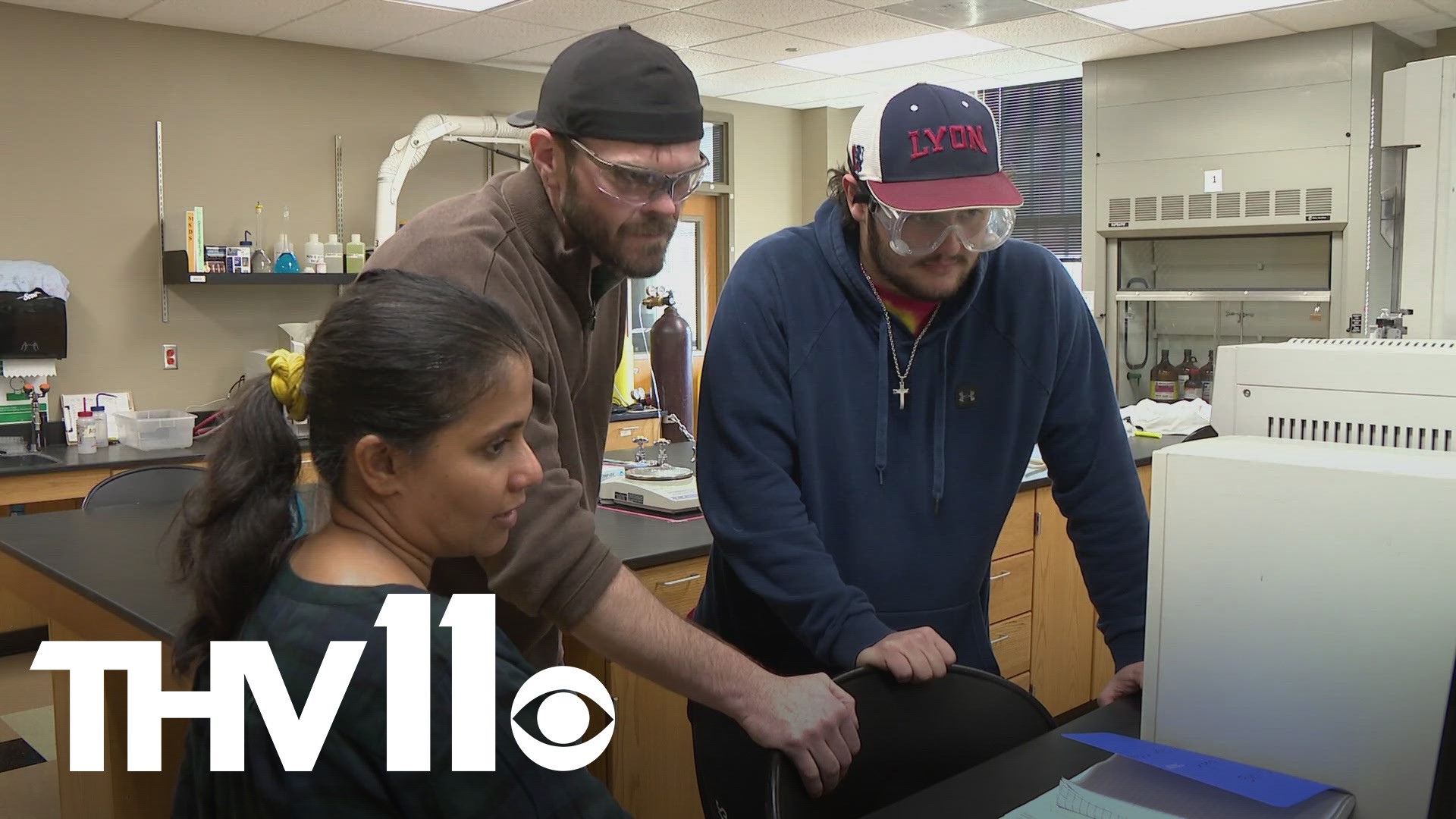BATESVILLE, Ark. — TV shows, podcasts, and documentaries about real-life crimes continue to fascinate Americans— and now, a new course at Lyon College in Batesville is allowing students to think like detectives and apply critical analyzing skills to help solve true crimes.
"I've watched a lot of TikTok crimes like the normal, like you said, the normal people that report on crimes based on the facts," said senior Layla Hudden.
When given the opportunity to learn more about how crimes are committed and the investigations that catch the criminals, many students jumped at the chance.
The classes were organized by Dr. Cassia Oliveira, an Associate Professor of Biology, along with Dr. Robert Miller, an Assistant Professor of Psychology, and Dr. Irosha Nawarathne, an Associate Professor of Chemistry in order to change the way students look at forensic sciences.
“We wanted to give the students a flavor of what forensic science is all about and those three areas to support this forensic psychology, forensic chemistry, and forensic biology really are important fields,” explained Dr. Oliveira. “I had to convince two of my colleagues to do it, and they were on board."
As the end of the semester draws near, the class is focusing on forensic chemistry. Ryan Holdiness, a senior in the class, described the experience as eye-opening.
“This class has basically ruined some shows for me because we talked about how that's not actually how it happens like with the forensic psychology section especially," he said.
One goal of the class is to intentionally debunk common misconceptions about what it takes to solve a crime.
“We discussed things like you know, how often it's sort of romanticized in TV. You might see some people, you know, rapidly solving crimes, while in the back of the car profiling somebody," Dr. Miller added.
The process of crime-solving takes on a whole new approach when actual methods of investigation are applied. Students talk about theories they hadn’t considered before, such as how to properly examine a crime scene.
“There's so much out there like blood spatter analysis, that is something that I hadn't been exposed to before. I love doing it," said Dr. Oliveira.
Some of the class time is spent in a lab in much the same way as forensic experts spend their time. Students said they were surprised to learn just how much is involved in a thorough analysis of a crime and the many tools needed to do it right.
"It's, it's hard. Like, it's really hard. I mean, especially if you're trying to pinpoint one specific person for a specific crime," described sophomore Zharia Childress.
Dr. Oliveira supports the concept of teamwork in an investigation, with each professional bringing their own strengths.
"Investigators need all kinds of training in their specific field, police officers also, and they just can't have the time to learn all the biology and chemical aspects of it and psychology. And so when all these things play together, you get a much more efficient criminal justice system," said senior Joey Howerton.
Dr. Oliveira also hammered home to the class how critical it is to not only do the work but to do it methodically and accurately.
“Yes, you want to find who is the criminal, but you also want to make sure that you can remove people who are innocent from suspicion, and that's a very important component, because we still have so many people that go to jail, right, and they were innocent,” she explained.
Dr. Nawaranthne said she enjoys watching young people discover new concepts and how to apply them. She teaches unusual applications of forensics like organic chemistry and instrumental analysis classes and also takes students off-campus directly to the Arkansas State Crime Lab.
“I think that would make me very happy to know that at least the small community of students I am bringing up will be able to go out and then spread the word,” Dr. Nawaranthne added.

